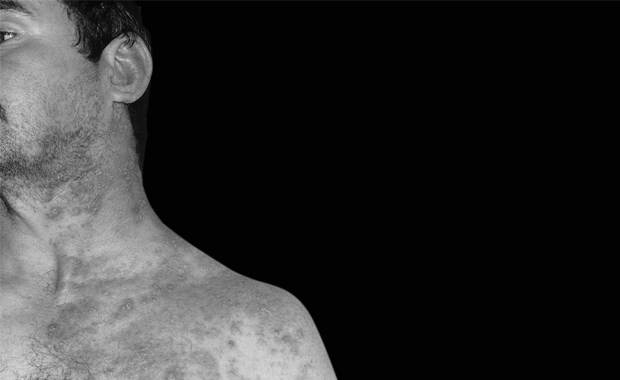Shingles: What You Need To Know
Education and Advocacy For those of you that have had chicken pox as a child, the shingles virus already lives inside you and can become active unexpectedly which can be seriously debilitating and painful. The best way to prevent this experience is to visit your doctor and find out if you are at risk.

Chicken pox is a common concern for children, but the virus behind this disease does not disappear along with its characteristic red spots. Instead, the varicella zoster virus remains in nerve roots and can reactivate later in life, this time, as a painful rash called shingles.
“Shingles can put a person’s life on hold. It can be extremely painful and can last for months,” says Canadian Skin Patient Alliance president Barbara-Anne Hodge. “Understanding the disease and who is most at risk in some cases can even prevent it.”
Who is at risk?
Anyone who has had chicken pox can develop herpes zoster, or shingles, but this disease typically affects people 60 and older, or those with a weakened immune system, and can be prompted by stress, injury, or certain medications.
Though researchers have identified the chicken pox virus as the cause of shingles, there is not yet a way to predict if or when the varicella virus will reactivate. “There are other risk factors, but you never know when you’re going to have it,” explains pain expert Dr. David Lussier, who suffered from shingles in his 30s.
In Canada, there are an estimated 130,000 cases of shingles each year — and these numbers appear to be increasing. “Humans are the only reservoir of the chicken pox virus and as we age, our immune system ages too and therefore we are all at risk of having shingles,” explains family physician and CTV health consultant Dr. Marla Shapiro.
A real pain
Nerves are what allow us to feel and when varicella reactivates in the nervous system, it can be excruciating. This neuropathic pain can make everything from putting on a shirt to receiving a hug, painful — and for some patients, the pain does not fade with the rash.
While the bumps and blisters from shingles typically last a couple weeks, some patients experience prolonged discomfort that can last months or even years. This complication, known as post-herpetic neuralgia, is the most common neurologic disability of the elderly and occurs in an estimated 20 percent of adults with shingles, according to Canada’s Public Health Agency.
“The most important thing is to get treated if you have shingles,” says Dr. Lussier. “If you wait too long, then the risk of having pain later is that much higher.”
Give healing a shot
Since the reactivation of the varicella virus cannot be predicted, the only way to protect against this disease is to get the vaccine, says infectious disease specialist Dr. Julie Bestman-Smith.
“The vaccine boosts our immune system so even if the virus reactivates, now we have the antibodies that are able to reduce its replication,” explains Bestman-Smith.
The herpes zoster vaccine has been available in Canada since 2009 and though it is recommended to everyone over the age of 60, Canadians 50 to 59 can also request it. The vaccination cannot guarantee that patients will not get shingles, but if they do, it can reduce the severity of the infection and any long-term effects, such as post herpetic neuralgia.
In addition to getting the vaccine, experts also recommend watching out for signs of shingles.
“Knowing the symptoms and seeing your doctor quickly when you suspect you may have shingles can help greatly speed up recovery,” says Hodge. “Speak with your doctor to learn if you are at risk and take steps to learn what you can about shingles.”

